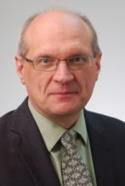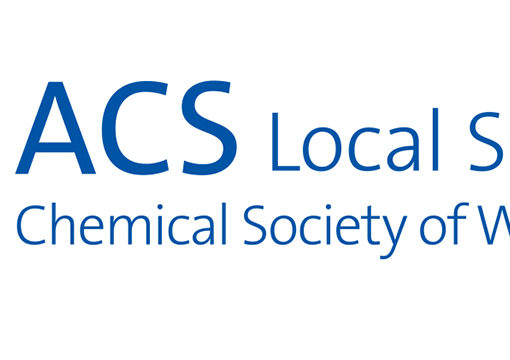 Dr. Bill LaCourse, University of Maryland, will speak at the joint Chemical Society of Washington/Washington Chromatography Discussion Group meeting on December 17th at the U.S. Pharmacopeia in Rockville. His talk is entitled, “Adventures in Analysis: New Approaches to Old Problems.”
Dr. Bill LaCourse, University of Maryland, will speak at the joint Chemical Society of Washington/Washington Chromatography Discussion Group meeting on December 17th at the U.S. Pharmacopeia in Rockville. His talk is entitled, “Adventures in Analysis: New Approaches to Old Problems.”
William R. LaCourse is the Dean of the College of Natural and Mathematical Sciences and Professor of the Department of Chemistry and Biochemistry at the University of Maryland, Baltimore County (UMBC). He is also a Kauffman Fellow of Entrepreneurship, and past CEO/cofounder of Aurora Analytics, LLC. He received his Ph.D. in Analytical Chemistry from Northeastern University in 1987. After completing a postdoctoral appointment at Ames Laboratory, he held the position of Scientist at Iowa State University/Ames Laboratory until he joined the faculty at UMBC in 1992. In 2005, he founded UMBC’s Chemistry Discovery Center, which has dramatically improved student performance in introductory chemistry courses and now oversees the College’s Active Science Teaching & Learning Environment (CASTLE), which is designed to study active-learning pedagogies across the STEM disciplines. In addition to his administrative experience at the University level, Dr. LaCourse has five years of industrial experience in the pharmaceutical industry on the development of product assays of both human and veterinary formulations. His research interests include basic and applied research on hydrodynamic electroanalytical techniques in chromatographic and electrophoretic systems. He has 111 publications, including 20 chapters and a sole-authored book entitled Pulsed Electrochemical Detection in High Performance Liquid Chromatography, and two issued patents. He has made over 250 presentations at national and international meetings. Dr. LaCourse is the recipient of several chemistry and research awards, an Editorial Advisor for Analytica Chimica Acta, an Associate Director of the California Separation Science Society (CASSS), and an active member of local and national professional societies and groups.
Abstract, “Adventures in Analysis: New Approaches to Old Problems”
Abstract: The University of Maryland, Baltimore County (UMBC) has been at the forefront of new and innovative ways to promote student success. Motivation is a key ingredient of persistence. One approach is to provide opportunities for undergraduate and graduate students to work on real-world problems using high-end analytical instrumentation (e.g., mass spectrometers, NMR, HPLC, GC, and spectroscopy). In doing so, students learn to collaborate, critically think, communicate, and learn marketable skills. We are achieving this goal by reinventing the typical “core” facility at a university into an active teaching and learning environment, which is operated by a facility manager under the College of Natural and Mathematical Sciences. This presentation will visit an array of analytical applications being investigated in the Molecular Characterization and Analysis Complex (MCAC), which in itself is a new approach for an old problem.
One of the oldest analytical techniques in separation science is thin layer chromatography (TLC). This technique has always suffered from lack of ability to rapidly identify separated compounds. In the MCAC, we have developed an ambient ionization source for mass spectrometry that functions as a surface analysis reader. In a matter of minutes, it can non-destructively scan an entire TLC plate and get mass spectra of each of the spots. This novel approach solves the age old problem of inconclusive information from TLC analysis.
The separation and direct detection of carbohydrates and glycans has been successfully accomplished using high performance anion-exchange chromatography followed by pulsed amperometric detection (HPAEC-PAD). A continuing analytical challenge has been the selective identification of carbohydrates versus other compounds, especially for complex samples. Typically, this problem is overcome by offline clean up and isolation. We have been working on the development of multiplex-pulsed amperometric detection (MPAD), which allows the analyst to confirm the presence of glycans/sugars from peptides and other interferences without the need for offline prep or multiple runs.
Another issue that has plagued us all is sensitivity, or how low can one go! Since the human olfactory system can sense off flavor compounds (OFCs), such as geosmin, as low as 10 ppt, it is imperative that analytical methods be able to quantitate below these levels. The MCAC has been working on the development of a method for OFCs using gas chromatography with mass spectrometry. Through the use of an improved chromatographic separation, optimized mass spectroscopy parameters, and a novel online trap and purge for a head space sampler, we have been able to achieve parts per quadrillion limits of quantitation and detection for water samples.
In conclusion, the MCAC has developed into an active learning facility, which supports internal and external researchers and scientists, for inspiring students to persist in STEM. This presentation will highlight several of their achievements.


